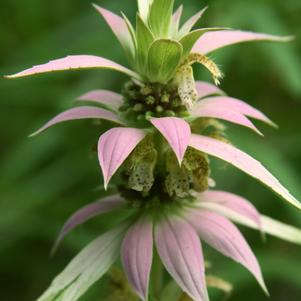General Description
Bloom Description: Compound flat-topped umbels hold tiny yellow flowers bloom in the summer. Unlike other carrot family flowers, the central flower of each umbel has no pedicel.
Growth Habit & Shape: The basal foliage of this short statured plant is deep green, glossy, and heart shaped with teeth. The foliage changes from simple and unlobed toward the ground to lobed and compound up the flower stock.
Soil Preferences: Dry to moist and well-drained soils. Prefers a calcareous substrate with a neutral pH, but is adaptable to a variety of soils. Very drought tolerant once established.
Root Description: Taproot; makes transplanting a challenge.
Garden Uses: Perfect colonizing ground cover or accent in full sun to part shade gardens, short meadows, perennial borders, cottage gardens, and low maintenance wildlife gardens.
Best Management & Maintenance: Mowing or burning to remove competition and promote reseeding could help sustain populations of this short-lived perennial. It can easily be shaded out by taller plants. If reseeding is not desired, then cut back spent flower stems before they go to seed.
Common Problems: none.
Benefits
Ornamental Value:
Wildlife Benefits: A variety of bees, including short-tongued bees, flies, butterflies, beetles, and plant bugs pollinate the flowers in return for pollen and nectar. The Zizia genera is a larval host for the black swallowtail butterfly, which specializes on carrot family plants. It also hosts the rigid sunflower border, Agonopterix clemensella, and common pug.
Other Practical/Environmental Benefits: Rain gardens, waterwise gardens, and a colonizing plant for streambank stabilization.
Use in place of: Aegopodium podagraria (bishop's goutweed)
Ecology
Habitat:
Dry to moist open woodlands, thickets, glades, riverbanks, meadows and forest openings and edges. It has a proclivity to calcareous bedrock and has historically been found around Native American shell middens.
Response to Disturbance: *See best management and maintenance practices
Native State Distributions:
Canada: CA: AB, BC, MB, ON, SK
"USA: US: AL, AR, CO, CT, DC, DE, FL, GA, IA, ID, IL, IN, KY, MD, MI, MN, MO, MS, MT, NC, ND, NJ, NV, NY, OH, OK, OR, PA, RI, SC, SD, TN, UT, VA, WA, WI, WV, WY
" Wetland indicator status: FACU: Usually occurs in non-wetlands, but occasionally in wetlands.
Companion Plants:
Sporobolus heterolepis (prairie dropseed), Carex crinita (fringed sedge), Monarda punctata (spotted beebalm), and Andropogon glomeratus (bushy bluestem), Schizachyrium scoparium (little bluestem).
References
Return to Top

